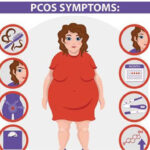Malaria is still killing many Nigerians including children and pregnant women, in spite of efforts towards reducing the burden of the disease, Daily Trust on Sunday investigations have shown.
This is happening as some countries in the region have achieved elimination of the disease or near elimination. According to the World Health Organisation (WHO), malaria is a life-threatening disease caused by parasites that are transmitted to people through the bites of infected female anopheles mosquitoes.
- How Boko Haram survives on weapons stolen from Nigerian military
- Nigeria-China N720bn currency swap deal on slow pace 3 years after
Some of the symptoms are fever, headache, vomiting, diarrhea, profuse sweating and anaemia.
Data obtained from the National Malaria Elimination Programme (NMEP) revealed that about 11 persons die from malaria related issues every hour in Nigeria.
The data, which quoted the WHO World Malaria Report 2020, also showed that nearly 61 million malaria cases occur in Nigeria annually, with one of four global malaria cases occurring in the country.
WHO Country Representative, Dr Walter Kazadi-Mulombo, said malaria remains a leading cause of morbidity and mortality in Nigeria. He said the country continues to bear the disproportionate brunt of the malaria toll accounting for 27 percent and 23 percent of global cases and deaths respectively.
“With all Nigerians at risk, it accounts for more than 60 percent of hospital visits, 20 percent of under-five mortality and 11 percent of maternal mortality.
“What is even more worrisome is that despite funding from government and partners, 44 percent of household out of pocket expenditure is on malaria. It is estimated that malaria causes a significant loss in economic growth and puts a strain on household finances,” he said.

Perpetua Uhomoibhi, National Coordinator, National Malaria Elimination Programme (NMEP), said malaria is one of the key health challenges that Nigeria has to deal with, and transmission is all year round in most parts of the country.
She said Nigeria sits on top of all the countries worldwide when it comes to malaria morbidity and mortality. She however said it is not all troubling news as there have been some progress.
“There is a reduction in the malaria prevalence from 42 percent in 2010 to 23 percent in 2018, along with a 38 percent reduction in mortality, according to the 2018 Nigeria and Demographic and Health Survey (NDHS) results.
“Key progress indicators such as net use, uptake of IPTp by pregnant women, seeking of care during fever, and use of the appropriate anti-malarial are improving,” she said.
While a reduction in the malaria prevalence was recorded in 2018, the disruptions in prevention and treatment caused by the COVID-19 pandemic worsened the malaria situation in the country.
The immediate past coordinator of the NMEP, Dr Audu Mohammed, had last year said, “With the onset of the current COVID-19 pandemic, the malaria challenge seems to be compounded. A lot still needs to improve, as we are not close to most of the targets we had set out to achieve in our current malaria strategic plan.”
Situation across some states

Borno records 359,366 cases, 370 deaths
Borno recorded 359,366 malaria cases and 370 deaths from the disease in 2020 according to Mala A Waziri, Programme Manager, State Malaria Elimination Programme, Borno State Ministry of Health.
Comparing the statistics from 2017 which was 330, 587 case and 240 deaths to 2020, he said the increase in cases may be due to improved reporting system from facilities to local government areas.
“Because a lot of training on data management was organized to educate the local government officials from 2019 to 2020,” he said.
Kano: 90 per cent of paediatric cases at AKTH malaria related – Expert
In Kano, Dr Adeshida Adewumi, Senior registrar, and chief residence, department of Family medicine Aminu Kano Teaching Hospital (AKTH), disclosed that about 90 percent of paediatric cases in the hospital are related to malaria.
He described malaria as one of the most serious health issues in the state, identifying poor environmental management and people’s attitudes to healthcare as contributory factors fuelling deaths from malaria in the state.
He said, “I have seen a lot of children in this hospital who die within few hours of arrival. This is because they will bring them only when the malaria is severe and their blood already gone.
“We normally report death weekly on malaria in this hospital. The issue of malaria is as serious as life itself. In this hospital, malaria is the highest presentation every day. And for people that come for treatment every day, it is hard to quantify because we have so many departments but I can assure you that if you go to adult emergency, even this GOPD, most people that come to see us are as a result of malaria.
“If you go to the paediatric unit, especially emergency paediatric unit, most children that are brought there is because of malaria. In fact, if we have 100 patients in that paediatrics department in a day, not less than 80 or 90 are malaria cases,” he added.
He said malaria related cases are not decreasing in the hospital owing to people’s attitudes to healthcare.
“Most people don’t come to hospital when they are sick and suspecting malaria. The first thing they do is to try all remedies, all kind of concoctions, visiting herbalists with the child. They wait until the problem is complicated. When it becomes severe, then you see them running to emergency saying ‘doctor my son is dying o’. Sometimes we lose them because it is too late, maybe at that time the kidney has already shut down, or the child has gone into coma because of cerebral malaria.”
All efforts to obtain the official statistics of the level of prevalence of the disease in the state proved abortive as both state agencies including the ministry of health and primary healthcare management board refused to release the statistics.
1,425,504 people tested positive for malaria in 2020 in Kaduna
The Kaduna State Government said it experienced a slight drop in prevalence rate of malaria in the state.
The Officer, Malaria Control Unit with the Kaduna State Ministry of Health, Mrs. Sakina Maikudi, said based on the 2020 Nigeria Demography Health survey, Kaduna State had 33 percent malaria prevalence rate.
Maikudi explained that the test positivity rate for the general public based on using the Rapid Diagnosis test (RDT) kits for malaria is 73.9 percent which means that those who tested positive for malaria in 2020 are 1,425,504.
She said 314 children under five years died as a result of malaria within the same year.
The officer also added that based on the 2020 report, malaria in the state had slightly decreased because in 2019, the percentage for those that tested positive was put at 74 .7 percent.
Mrs. Kemi Olufemi of the Malaria Consortium, a Civil Society Organisation, said that attitude to prevention and treatment of malaria is low in Kaduna, adding that: “People don’t like sleeping under the nets. The government recently distributed nets but those given are still not sleeping under them and in terms of the treatment, it is not every fever case that is linked to malaria but once people have fever, they think it is malaria.”
She however said awareness and knowledge about the prevention and treatment of malaria was on the increase. “The issues are mostly when it comes to practice and the problem in particular is people’s attitude towards the use of malaria drugs and testing.”
Benue confirmed 164,963 malaria cases last year
At least, 164,963 malaria cases were confirmed last year alone in Benue State.
Programme Manager, State Malaria Elimination Programme, Mrs Susan Abege, said that the disease was on the decline in the state.
Quoting the Demographic Health Survey, Abege said that the prevalence rate of malaria in the state declined from 43 percent in 2015 to 13 percent in a 2018 survey.
“So, there is actually a drop in the prevalence rate. 60 percent of hospital attendants are as a result of malaria while 30 percent hospital admission is as a result of malaria.
“Persons with confirmed uncomplicated malaria in 2020 are a total of 164,963,” she said, adding that children under five years are most vulnerable while pregnant women are worst hit.
Abege said in 2020 alone, there was a distribution of 3.6million nets in all 23 local government areas of the state.
Private hospitals in Lagos record minimum of five malaria cases daily
Dr Makinde Akinlemibola, the Chairman of Association of General and Private Medical Practitioners of Nigeria (AGPMPN), has said that malaria is the most reported case in most hospitals in Lagos. He hinted that most hospitals usually attend to a minimum of five to six malaria cases every day.
According to him, malaria-related deaths are common, especially with children due to their low immunity. He explained that malaria deaths in children were as a result of their immunity which he claimed was not as strong as that of an adult.
“The elderly too have incidences of death because of malaria as a result of low immunity. People who also die due to malaria are those who have immune depression,” he said.
He also warned of cerebral malaria which occurs when malaria gets to the brain.
He urged people to boost their immunity because depressed immunity in children, adult, elderly and immuno-compromised individuals leads to cerebral malaria.
He warned that untreated malaria in an individual whose immunity is low could lead to cerebral malaria and eventually death.
The general practitioner cautioned that patronizing herb sellers for malaria herbs would not cure the ailment, rather, it would only relieve the pain for a while, and has side effect on the body.
He urged people to take anti-malaria drugs for malaria treatment. “Do a test to confirm it is malaria.”
Dr Akinlemibola said that diagnosis is important before the treatment of malaria as other medical conditions manifest with the same symptoms as that of malaria.
He urged the populace to ensure a proper test is done to ascertain whether they have malaria or not rather than assuming.
“The ideal thing is to do a malaria test when the symptoms such as fevers, headache, and evening sickness are felt by individuals. Stop buying malaria drugs over the counter but ensure you buy a prescribed drug.”
The private hospitals head lamented that malaria cases are on the increase in Lagos.
“Mosquito, the vector carrying malaria, only breed in stagnant water. Our drains in Lagos are not cleared. There are tyres on the road, bottles and other items which hinder free flow of water. The government can ensure a reduction in malaria cases when policies which enforce clearing of drains are made. When drains are cleared, there will be a reduction in stagnant water and mosquitoes causing malaria infestation will be reduced.”
In his projection, the rainy season ensures a free flow of water in the drainage as well as assists dirt to block drains, retain stagnant water.
“Keep your environment clean, dispose of empty bottles properly, let the drains flow so there will be no stagnant water. With this, the number of mosquitoes will reduce and the cases of malaria will also reduce,” he advised.
Efforts to reach the Lagos State Ministry of health for the statistics on the prevalence of malaria in Lagos proved abortive.

Tackling the burden of the disease
WHO Country Representative, Dr Walter Kazadi-Mulombo, said collective action across sectors is crucial to address the challenges and accelerate progress towards ending the malaria scourge in Nigeria.
He said the theme for this year’s World Malaria Day, “Zero Malaria – Draw the Line Against Malaria,’ re-emphasizes the need for collective responsibility towards ending the devastating scourge of a disease that is preventable and curable.
“Simple interventions such as sleeping inside insecticide treated nets, ensuring that every suspected case of malaria is tested and if positive treated with Artemisinin-based combination therapy (ACTs), prevention of malaria in pregnancy through use of sulfadoxine-pyrimethamine (SP-IPTp) among other preventive strategies. Not every fever is malaria.”
Programme Manager, Benue State Malaria Elimination Programme, Mrs Susan Abege, said “The only way we can reduce malaria in our country is through the use of long-lasting insecticide nets. This is because nets are more preventive than the insecticides we spray in our homes. When we spray insecticides, after 12 midnight, the mosquitoes come back to bite.
“But when you use nets all year round, it keeps mosquitoes away. This is because mosquitoes which causes malaria are not seasonal but all year round,” she added.
While stressing the need for people to seek prompt treatment of malaria, Abege said that not all fevers are malaria and so those who are down with fever should test before administration of proper treatment.
Mrs. Kemi Olufemi of the Malaria Consortium, a Civil Society Organisation said that malaria could be controlled through prevention and treatment. She said for prevention, it is advisable for residents to sleep under mosquito treated nets especially children under five and pregnant women.
She called on government to invest more on one-on-one communication with the public as means of expanding awareness, adding that such awareness creation must go beyond the primary health care centres to the various communities.
Perpetua Uhomoibhi, National Coordinator, National Malaria Elimination Programme (NMEP), said Nigerians need to be encouraged and galvanized into actions that will reduce their risk to getting malaria. She said of particular concern are children less than five years and pregnant women because they are more at risk of getting malaria and suffering from its consequences than other groups. This is because of their levels of immunity.
She advised Nigerians to do the following:
-Sleep inside the Insecticide Treated Nets every night
-Eliminate mosquito breeding sites around your home
-Test for malaria before treatment, and
-Pregnant women should register early for antenatal care and take SP at least three times before they deliver.
Speaking on efforts to tackle the burden of the disease, Minister of Health, Dr Osagie Ehanire, said 17,267,410 Insecticide Treated Nets (ITNs) were distributed in six states, using single-phase door-to-door and double phase door-to-door strategies, due to the COVID-19 pandemic.
He said some states’ data showed increases in malaria testing rates between 2019 and 2020. Some of them include Kaduna from 96 percent in 2019 to 98 in 2020; Kwara from 94 in 2019 to 97 in 2020; Lagos from 74 in 2019 to 76 in 2020; Osun from 96 in 2019 to 98 in 2020 and Taraba from 90 in 2019 to 93 percent in 2020.
By Ojoma Akor (Abuja), Mohammed Ibrahim Yaba (Kaduna), Hope Abah Emmanuel (Makurdi), Olatunji Omirin (Maiduguri), Richard P. Ngbokai (Kano) & Risikat Ramoni (Lagos)

 Join Daily Trust WhatsApp Community For Quick Access To News and Happenings Around You.
Join Daily Trust WhatsApp Community For Quick Access To News and Happenings Around You.


